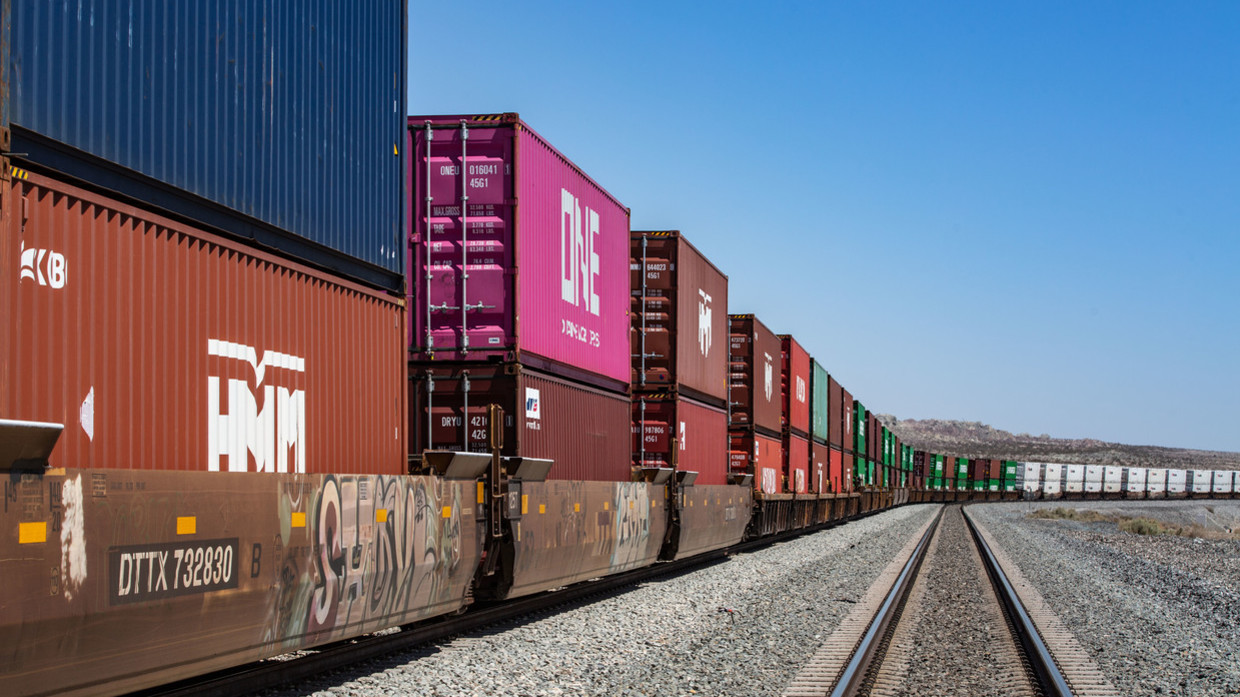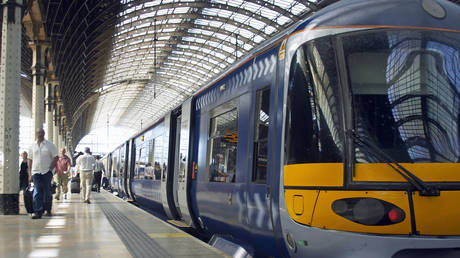Nearly 115,000 US rail workers are poised to go on strike on Thursday at midnight, shutting down 40% of long-distance trade, after negotiations between rail unions and carriers failed to bear fruit. While the end of the “cooling off” period does not guarantee a strike, two of the 12 rail workers’ unions have yet to reach a deal with the industry’s bargaining committee, and the other 10 have vowed to walk off the job if even one union is left without a contract.
A strike would cost the US economy as much as $2 billion per day, according to the Association of American Railroads (AAR). The US Chamber of Commerce is warning of a “national economic disaster,” while industry figures warn the impact of a strike would double each day it continued. The US economy is already strained by supply chain disruptions stemming from the Covid-19 shutdowns, record high inflation, and sky-high energy costs.
President Joe Biden is reportedly working with “other modes of transportation” to try to pick up the slack, but the trucking industry was already short 80,000 drivers before the strike, and the AAR’s analysis found an additional 467,000 long-haul trucks would be required to move the stalled freight.
A Presidential Emergency Board appointed in July has recommended a 14% wage increase for workers and stronger benefits, but the unions say they won’t accept any proposal that doesn’t change the “brutal” attendance policies that currently force them to be “on call” 90% of the time.
“If this contract is presented to our members in its current form, it will not pass,” a union spokesperson told CNBC on Monday.
The workers are angry. They want movement on attendance policies and not be afraid to take a sick day or vacation day without the fear of termination.
Railroads insist the system is necessary to ensure sufficient manpower to operate and claim to have been hiring aggressively to ease the strain, but the US Surface Transportation Board reported major carriers have cut their ranks by 29% over the past six years.
Carriers are already preparing for the strike, securing hazardous materials and other sensitive cargo. Passenger operator Amtrak has canceled all long-distance routes starting Thursday in preparation for the strike. While its own employees are not part of the unions involved, 97% of its service operates on freight lines serviced by the striking unions.
Passenger service in the northeast corridor, from Washington, DC to Boston via New York City, will not be affected, however.
Rail workers last went on strike in 1992. The walkout lasted two days before Congress intervened, a possibility the Biden administration is likely hoping to avoid in a midterm election year in which his party needs union support.


